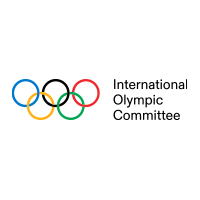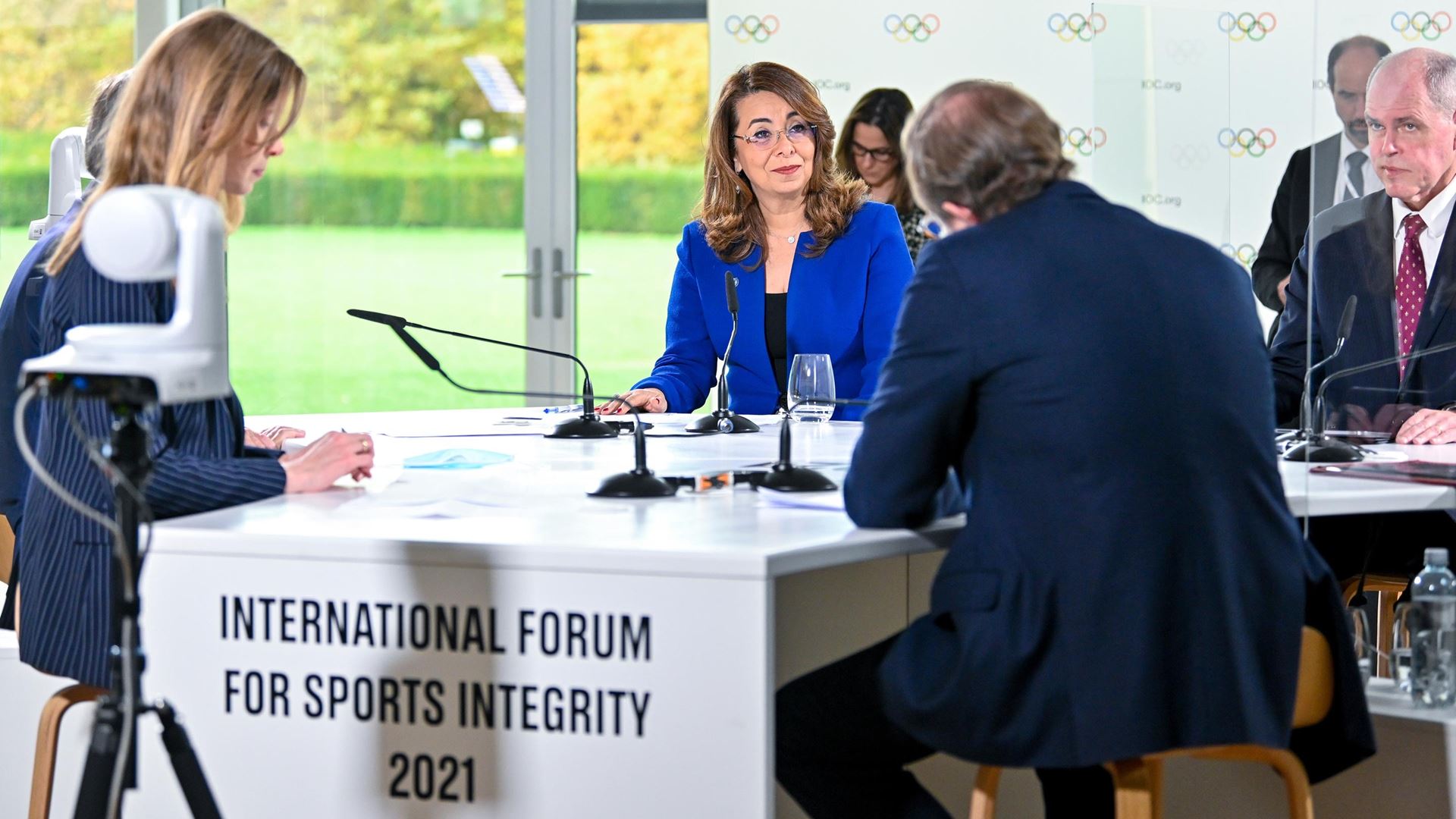09 Nov 2021 - Over 500 participants joined the fourth edition of the International Forum for Sports Integrity (IFSI), which was led by the International Olympic Committee (IOC) and held virtually today (9 November 2021) from Lausanne.
Representatives of the Olympic Movement, governments, intergovernmental agencies, betting entities and other experts acknowledged the importance of strengthening their cooperation, in particular through the International Partnership Against Corruption in Sport (IPACS), in order to protect the credibility and integrity of sport. IPACS was created during the second edition of IFSI in 2017.
The value of partnerships was a central theme throughout the discussions, with top-level attendance by all four intergovernmental organisations specialised in the field: the United Nations Office on Drugs and Crime (UNODC), the Council of Europe (CoE), the Organisation for Economic Cooperation and Development (OECD) and INTERPOL.
IOC President Thomas Bach, in his opening remarks, reiterated the IOC’s full commitment to the fight against competition manipulation and corruption in sport, and said: “While our task is always work in progress, we can see today that our collaborative approach that we launched at the first edition of IFSI in 2015 is working. But for our approach to be truly effective, we need the support of governments, in particular with regard to the harmonisation of legislation and the commitment of law enforcement entities. This is why I would like to call upon more governments to join our efforts, because only if we stand united can we win the fight against corruption and misconduct in sport.”
Welcoming the recent endorsement from the G20 Leaders’ Summit, President Bach added: “The activities of IPACS were already recognised by the G20 Anti-Corruption Working Group in 2019. In their declaration at the most recent G20 Leaders’ Summit in Rome, the G20 Leaders reiterated their commitment to this fight by endorsing the G20 high-level principles on tackling corruption in sport. All this shows that our actions are appreciated by the international community.”
He went on: “Collaboration is also needed to use sport to prevent young people from falling into crime.” President Bach said that the expertise in the field of education on the Olympic values is a valuable basis for this new area of cooperation.
Click here to read the full speech.
The participants recognised the development of IPACS since its creation, with the involvement, on the sports side, of all the Olympic International Federations (IFs) and a great number of non-Olympic IFs and National Olympic Committees (NOCs), as well as a growing number of governments (over 40 as of today) willing to tackle the issue of corruption in sport.
The need for more governments to be committed to the IPACS initiative was highlighted, in particular with the support of intergovernmental organisations such as the UNODC, the OECD, the CoE and INTERPOL.
The Forum also stressed the importance of good governance as the major mitigating factor for corruption risks in sports organisations and highlighted the necessity of cooperation to exchange information on corruption cases.
Best-practice examples discussed during the Forum included the review of IF governance, led by the Association of Summer Olympic International Federations (ASOIF), and the processes set up by the Paris 2024 Organising Committee to mitigate the risk of corruption during procurement.
The second part of the Forum looked at ways to further strengthen the prevention of competition manipulation. The participants acknowledged the achievements made by the Olympic Movement Unit on the Prevention of Manipulation of Competitions and the “3-Pillar Strategy”, which covers the fields of legislation/regulations, awareness-raising/capacity-building and intelligence/investigation. During the Olympic Games Tokyo 2020, no incident was reported and no disciplinary or law enforcement action was taken related to Olympic events. For the upcoming Olympic Winter Games Beijing 2022, an educational campaign for officials and athletes, robust rules and processes and the 24/7 monitoring of all Olympic events will be in place again.
The review of the Olympic Movement Code on the Prevention of the Manipulation of Competitions, aimed at strengthening safe reporting mechanisms, awareness-raising programmes and compliance processes, was also presented and fully supported by the participants. The governments were encouraged to develop their legislation to include clearly defined criminal offences, making use of the guidance provided in the newly published UNODC-IOC “Legal approaches to tackling the manipulation of sports competitions”.
Click here to read the full conclusions from the Forum.
On the sidelines of the Forum, the IOC and the UNODC signed earlier in the day a new memorandum of understanding (MoU) to further strengthen the ties between the two organisations. The aim is to fight corruption and crime in sport, with a particular focus on preventing youth crime, violence and drug use through sport.
Click here to read the full story about the MoU.

